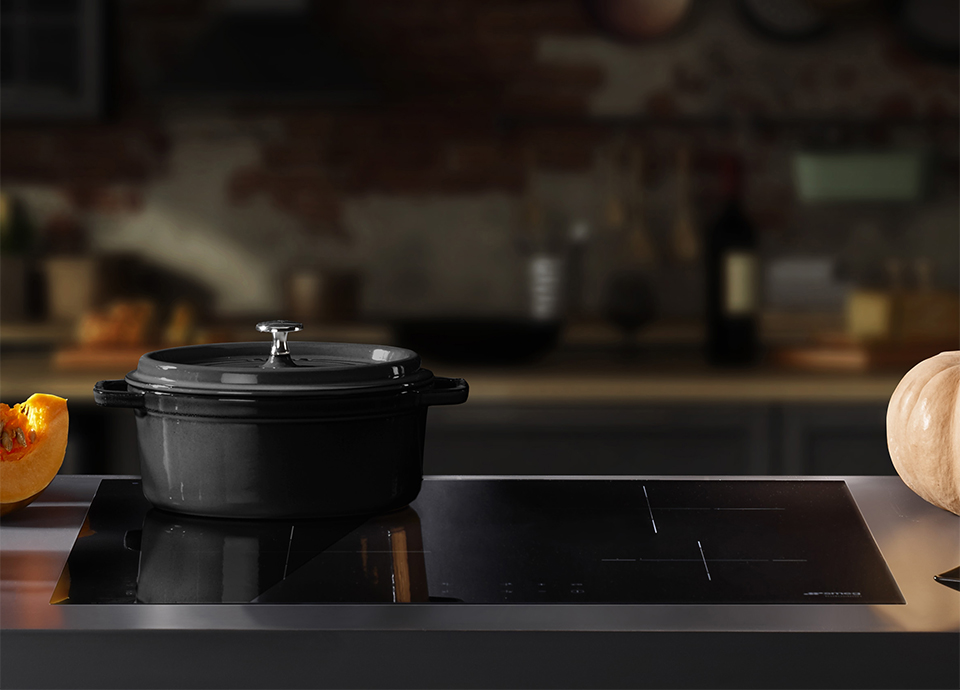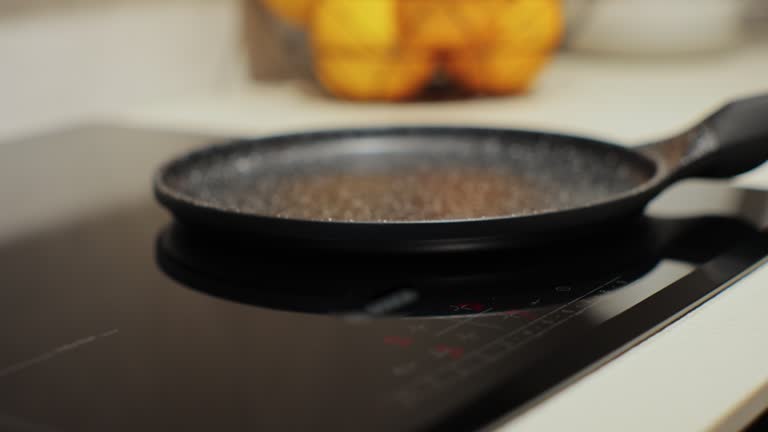Cast Iron vs Aluminum on Induction: Which is Best?
Written By James Morgan
If you're passionate about barbecue, you likely know that choosing the right cookware can make all the difference in your outdoor cooking adventures. Today, we're shining a spotlight on two popular materials: cast iron and aluminum. Both have their merits, but how do they perform when placed on an induction cooktop? As induction cooking continues to transform kitchens with its efficiency and precision, its essential to understand how these materials stack up. In this article, we'll explore the advantages and disadvantages of using cast iron and aluminum on induction cooktops, guiding you to the best choice for your next grill session.
First, lets take a moment to understand the magic behind induction cooking. Unlike traditional gas or electric stoves, induction cooktops utilize electromagnetic fields to heat the cookware directly. This unique feature makes the choice of material crucial for effective cooking. So, where do our beloved cast iron and aluminum stand in this scenario?

The Appeal of Cast Iron
Cast iron has long been a favorite among barbecue lovers for good reason. It offers superior heat retention and even cooking, making it ideal for grills and skillets alike. On induction cooktops, cast iron shines thanks to its ferromagnetic properties, which allow it to work seamlessly with the electromagnetic fields. This makes cast iron the go-to option for anyone looking to achieve that perfect sear on their steaks.
One major benefit of using cast iron on induction is its capability to maintain consistent heat, essential for achieving that flawless barbecue crust. Plus, the durability of cast iron means it can endure the high temperatures demanded by grilling, imparting that delicious smoky flavor we all crave.
Drawbacks of Cast Iron
However, cast iron isnt without its downsides. One of the most significant drawbacks is its weight. Cast iron cookware is quite hefty, which can be a hassle when youre trying to maneuver around a busy grilling space. Additionally, it requires more care than other materials, needing regular seasoning to keep its non-stick surface and prevent rust.
The Benefits of Aluminum
On the other hand, aluminum cookware is celebrated for being lightweight and exceptionally conductive. It heats up quickly and spreads heat evenly, making it a solid choice for many cooks. However, when it comes to induction cooking, aluminum has a notable drawbackits not naturally magnetic. This means that standard aluminum cookware isn't compatible with induction cooktops without a specialized induction-compatible base.
This limitation can be a major concern for grilling fans, as it restricts the versatility of aluminum cookware on induction platforms. Nevertheless, some brands have resolved this issue by incorporating a magnetic layer at the bottom of aluminum pots and pans, allowing them to work on induction cooktops.
Advantages of Aluminum
Despite its limitations, aluminum cookware offers distinct advantages. Its lightweight nature makes it easy to handle, a big plus in the hustle and bustle of outdoor cooking. Additionally, its excellent heat conductivity guarantees even cooking, reducing the risk of hot spots that could burn your food.
Making the Decision: Cast Iron or Aluminum?
Choosing between cast iron and aluminum for your induction cooking needs ultimately boils down to your cooking style and preferences. If you value heat retention and durability, cast iron is your best bet. Its compatibility with induction cooktops and ability to enhance flavors make it a favorite among grilling aficionados. Conversely, if you prefer lightweight cookware that heats up quickly, then aluminum with an induction-compatible base could be the way to go.
For serious grillers looking to maximize their induction cooktop, consider investing in both types of cookware. This way, you can enjoy the benefits of each, utilizing cast iron for that perfect sear and aluminum for quicker, more even cooking.
Conclusion
In summary, both cast iron and aluminum have distinct strengths and weaknesses in the context of induction cooking. Understanding these differences allows barbecue enthusiasts to make choices that elevate their cooking experience. To dive deeper into the world of cast iron, explore this guide.

FAQs
Can I use regular aluminum pans on an induction cooktop?
Regular aluminum pans cannot be utilized directly on induction cooktops unless they have an induction-compatible base.
Is cast iron better than aluminum for barbecuing?
Each material has its advantages. Cast iron excels in heat retention and flavor enhancement, while aluminum is lightweight and heats rapidly.
How do I maintain cast iron cookware?
Regular seasoning is required to maintain the non-stick surface and prevent rust. Clean it with hot water and a stiff brush, then ensure it's thoroughly dried.



